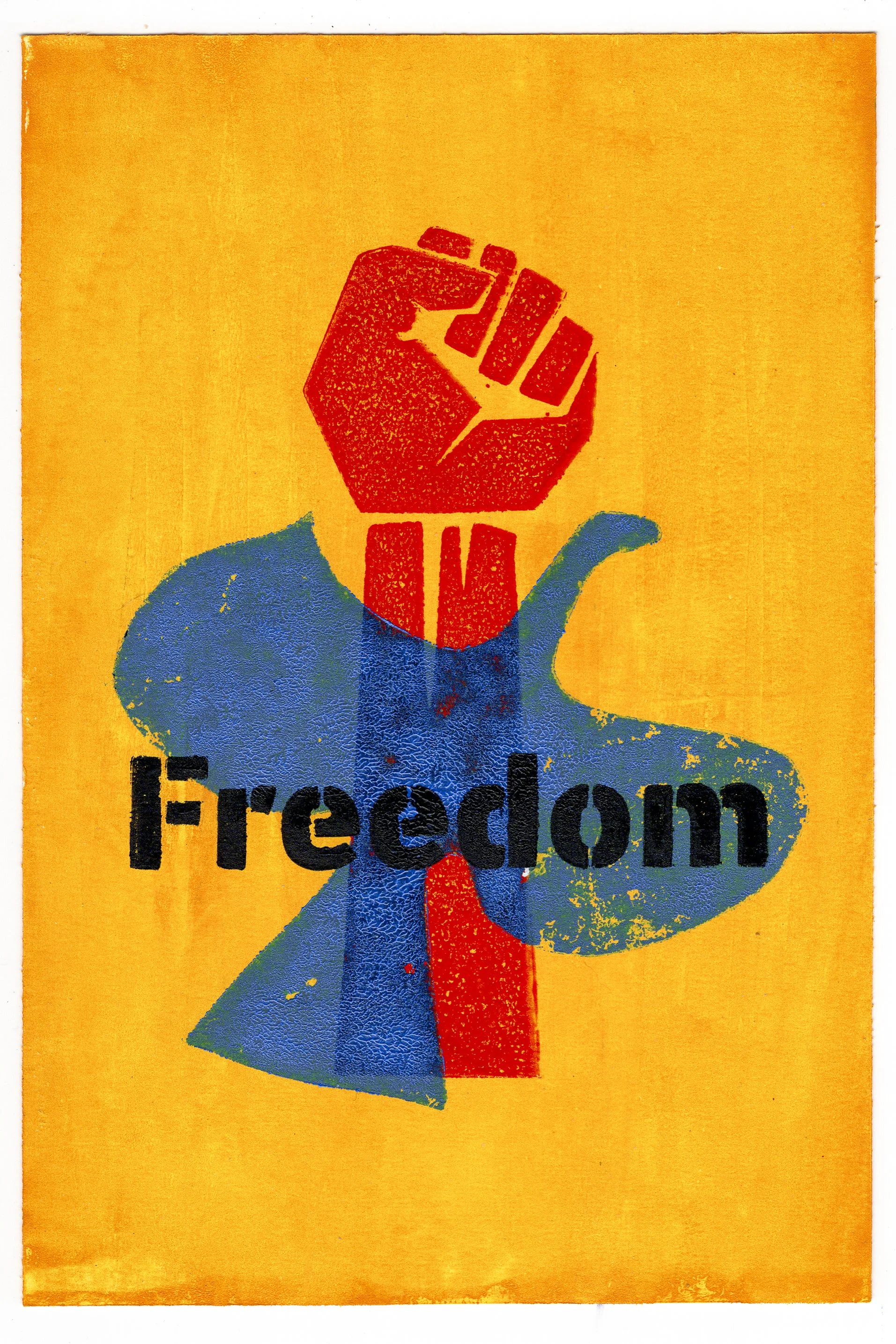Poetry series
the one less traveled by
the warmth, the strength of that embrace
nothing left to lose
send not to know for whom the bell tolls
near wild heaven
things fall apart
collage
Universal Declaration of Human Rights Series

the one less traveled by
the warmth, the strength of that embrace
nothing left to lose
send not to know for whom the bell tolls
near wild heaven
things fall apart







article one: All human beings are born free and equal in dignity and rights. They are endowed with reason and conscience and should act towards one another in a spirit of brotherhood.

article two: Everyone is entitled to all the rights and freedoms set forth in this Declaration, without distinction of any kind, such as race, colour, sex, language, religion, political or other opinion, national or social origin, property, birth or other status. Furthermore, no distinction shall be made on the basis of the political, jurisdictional or international status of the country or territory to which a person belongs, whether it be independent, trust, non-self-governing or under any other limitation of sovereignty.

article three: Everyone has the right to life, liberty and security of person.

article four: No one shall be held in slavery or servitude; slavery and the slave trade shall be prohibited in all their forms.

article five: No one shall be subjected to torture or to cruel, inhuman or degrading treatment or punishment.

article six: Everyone has the right to recognition everywhere as a person before the law.

article seven: All are equal before the law and are entitled without any discrimination to equal protection of the law. All are entitled to equal protection against any discrimination in violation of this Declaration and against any incitement to such discrimination.

article eight: Everyone has the right to an effective remedy by the competent national tribunals for acts violating the fundamental rights granted him by the constitution or by law.

article nine: No one shall be subjected to arbitrary arrest, detention or exile.

article ten: Everyone is entitled in full equality to a fair and public hearing by an independent and impartial tribunal, in the determination of his rights and obligations and of any criminal charge against him.

article eleven: Everyone charged with a penal offense has the right to be presumed innocent until proved guilty according to law in a public trial at which he has had all the guarantees necessary for his defense.

article twelve: No one shall be subjected to arbitrary interference with his privacy, family, home or correspondence, nor to attacks upon his honour and reputation. Everyone has the right to the protection of the law against such interference or attacks.

article thirteen: Everyone has the right to freedom of movement and residence within the borders of each state. Everyone has the right to leave any country, including his own, and to return to his country.

article fourteen: Everyone has the right to seek and to enjoy in other countries asylum from persecution. This right may not be invoked in the case of prosecutions genuinely arising from non-political crimes or from acts contrary to the purposes and principles of the United Nations.

article fifteen: Everyone has the right to a nationality. No one shall be arbitrarily deprived of his nationality nor denied the right to change his nationality.

article sixteen: Men and women of full age, without any limitation due to race, nationality or religion, have the right to marry and to found a family. They are entitled to equal rights as to marriage, during marriage and at its dissolution. Marriage shall be entered into only with the free and full consent of the intending spouses. The family is the natural and fundamental group unit of society and is entitled to protection by society and the State.

article seventeen: Everyone has the right to own property alone as well as in association with others. No one shall be arbitrarily deprived of his property.

article 18: Everyone has the right to freedom of thought, conscience and religion; this right includes freedom to change his religion or belief, and freedom, either alone or in community with others and in public or private, to manifest his religion or belief in teaching, practice, worship and observance.
